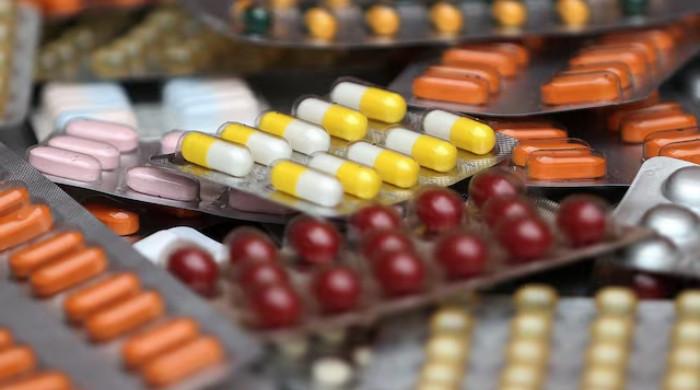Islamabad: Pakistani health authorities have initiated “emergency preparedness” measures to secure pharmaceutical supplies in response to the suspension of trading tapes with India.
This step comes after tension escalated after an attack in Pahagam in the Indian illegally occupied Jammu and Kashmir (IIOJK).
Pakistan (DRAP) with Drug Authority has confirmed that although there has been no formal notification of the course’s influence on the pharmaceutical sector, emergency plans are already in place.
“After the 2019 crisis, we had begun to prepare for such events. We are now actively looking at alternative opportunities to meet our pharmaceutical needs,” said a senior drap official.
Currently, Pakistan is dependent on India for 30% to 40% of its pharmaceutical ingredients, including active pharmaceutical ingredients (API) and various advanced therapeutic products.
With this supply chain distributed, Drap seeks alternative sources from China, Russia and several European countries.
The Agency aims to ensure the continuous availability of essential medical supplies, including vaccines against rumps, anti-snake poison, cancer treatments, monoclonal antibodies and other critical biological products.
While DRAP’s emergency preparedness offers some insurance, Industrial Insiders and Health experts have warned of a threatening challenge if no immediate action is taken to manage the fall of trade suspension.
“Pakistan imports about 30% –40% of its pharmaceutical raw material from India. We also import finished products, most importantly, anti-cancer treatments, biological products, vaccines and sera, especially anti-rabies vaccine and anti-snake venom from India,” a high-ranking official from the Ministry of National Health Services, regulations and coordination said.
The Ministry of Health has not yet received an official directive preparing the status of pharmaceutical imports, despite the government’s blanket, which suspends all trade in India.
The pharmaceutical sector fears that disturbance in the supply chain can lead to critical deficiency.
The situation is further complicated by the existence of a robust black market in which unregistered and non -approved medicine – many of Indian origin – smuggled into Pakistan through Afghanistan, Iran, Dubai and even across the eastern border.
While these channels fill gaps left by legal import, they offer no guarantee of quality or consistent supply.
A delegation of pharmaceutical industrial leaders traveled to Islamabad on Thursday to appeal to an exception to the trade ban.
We had meetings with draps and officials for traders to discuss the suspension of trading tapes. We encouraged them to exempt the pharmaceutical sector from the ban as there are many life-saving products whose raw materials come exclusively from India, “said Tauqeer-Ul-Haq, president of Pakistan Pharmaceutical Producers’ Association (PPMA).
The PPMA delegation also approached Special Investment Facilitation Council (SIFC) and argued that pharmaceutical and health-related trade must be excluded from the ban to protect patients’ lives.
However, some experts see the current crisis as a waking call for long -term investments in local production of APIs, vaccines and biological.
“This crisis could be a turning point for Pakistan,” Dr. Zafar Iqbal, a senior expert in public health.
“Dow University of Health Sciences (DUHS) Karachi has already begun to produce vaccines with anti-rabies using Chinese raw materials and is working on Venom Anti-Snake Venom.



